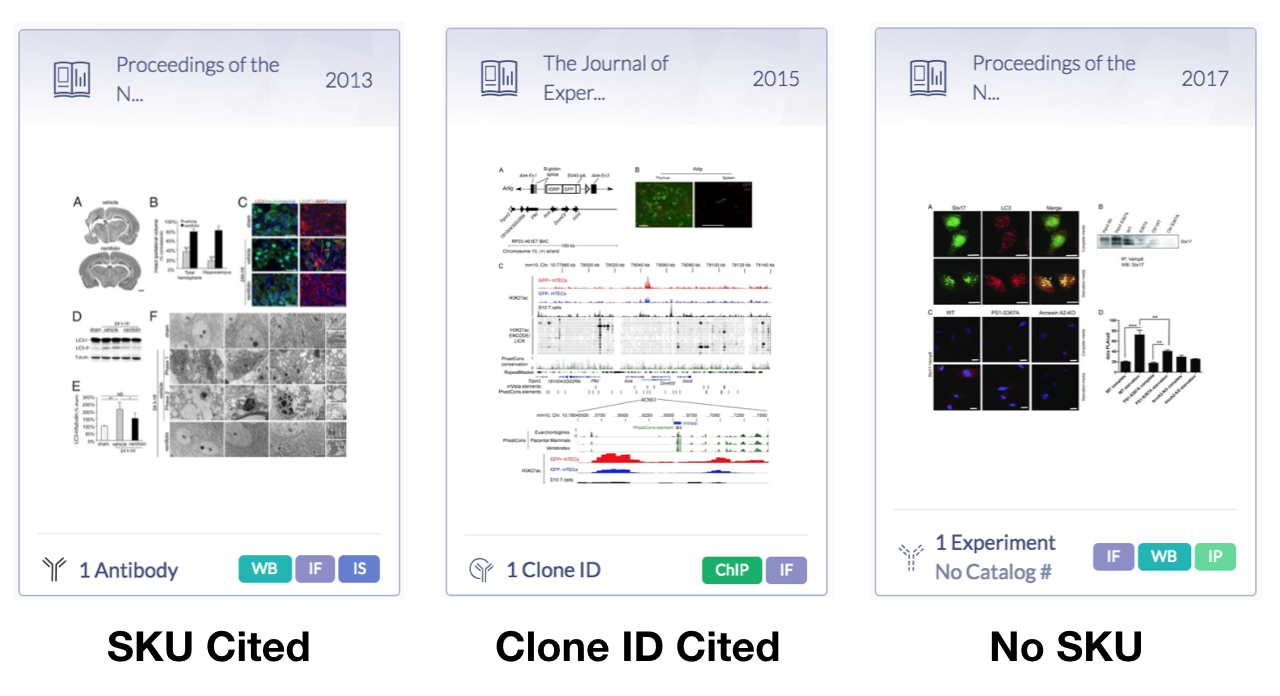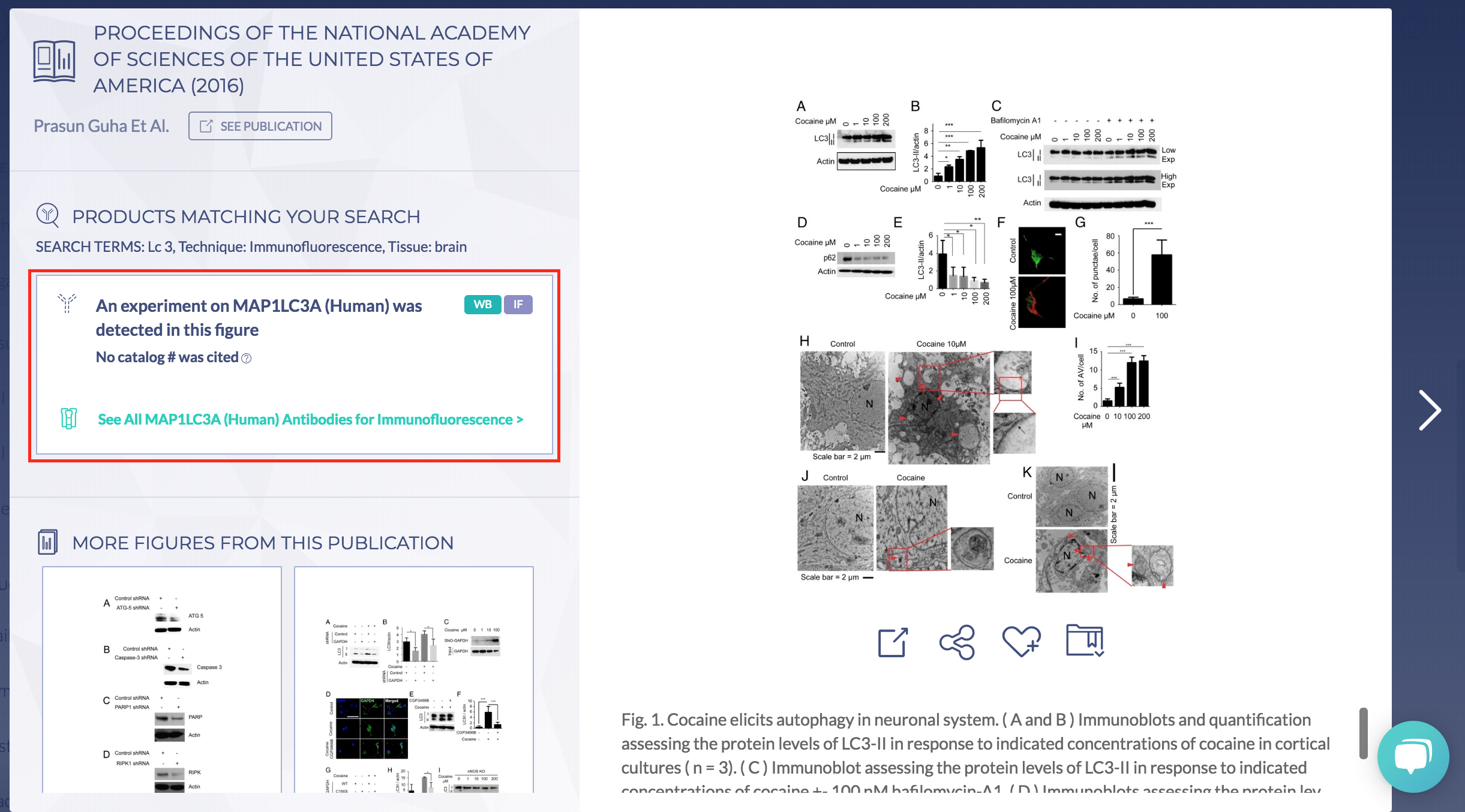We're starting 2019 strong by releasing a major data update that we've been working on for the past 6 month. Are you excited as we are? Let's dig into the details.
Not All Papers Cite the Antibody in Full
Anyone who has done a literature search for antibodies knows that not all papers contain the information you need to find the exact antibody used. That is, citing at least the catalog number (or SKU, Stock Keeping Unit) and the company name. In fact, it has been estimated that only 44% of antibodies mentioned in the literature can be traced back to their origins, since the SKU or company name were often missing.
Since our goal at BenchSci is to help you find the exact antibody that you need based on published data, our data collection process initially only included papers that cited a SKU. However, since more than half of the papers in the literature do not mention a SKU, we were missing more than half of the published data out there.
Detecting Data in Papers with No SKU Using Machine Learning
While published data without a full antibody citation (hereon referred to as "No SKU data") may not be too useful if one wishes to acquire a commercially available antibody, no SKU data can still provide certain insights when it comes to antibody search. For example:
- A paper may not contain a SKU because the antibody was custom-made or produced in-house by the lab, and therefore there was no SKU to cite. Knowing this, you could contact the authors for the antibody.
- Some no SKU data may still include the company name, hence narrowing down your search to a particular company.
- It provides more data on how other labs are studying your protein of interest. You could contact the authors if they had used a technique that wasn't cited anywhere else for the protein.
For these reasons, we improved our machine learning algorithm to also detect published data by protein studied, and you can now review no SKU data on BenchSci during your antibody search. No-SKU data are shown at the end of the figure results, with a note "No Catalog #". They look like this:

When you click into a no SKU figure, you can review the figure and legend directly, and link to the paper to contact the authors if you wish. You can also view a list of commercially available antibodies that have been published in other papers that used the same technique as you specified, like so:

By adding the no SKU data, we effectively doubled the number of published figures on our database to over 4 million in total, making it easier for you to find the data you need, be it data with SKU, clone ID, or no SKU. Give it a try again now if you weren't able to find the data you were looking for previously.
We are excited to bring these data to you after 6 months of work! What do you think about the no SKU data? What other types of data do you look for for your antibody search? Let us know in the comment below.
Happy researching!

